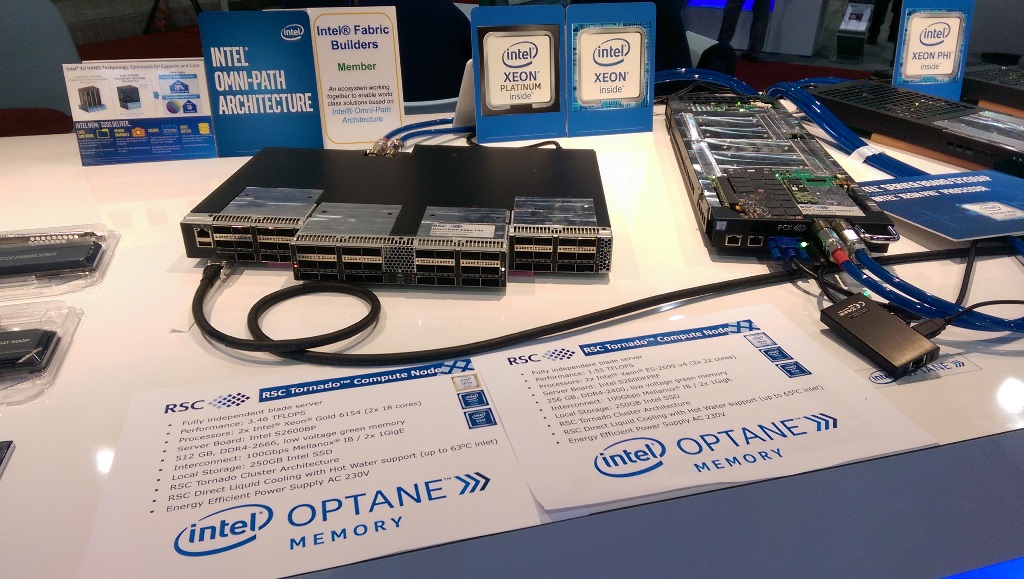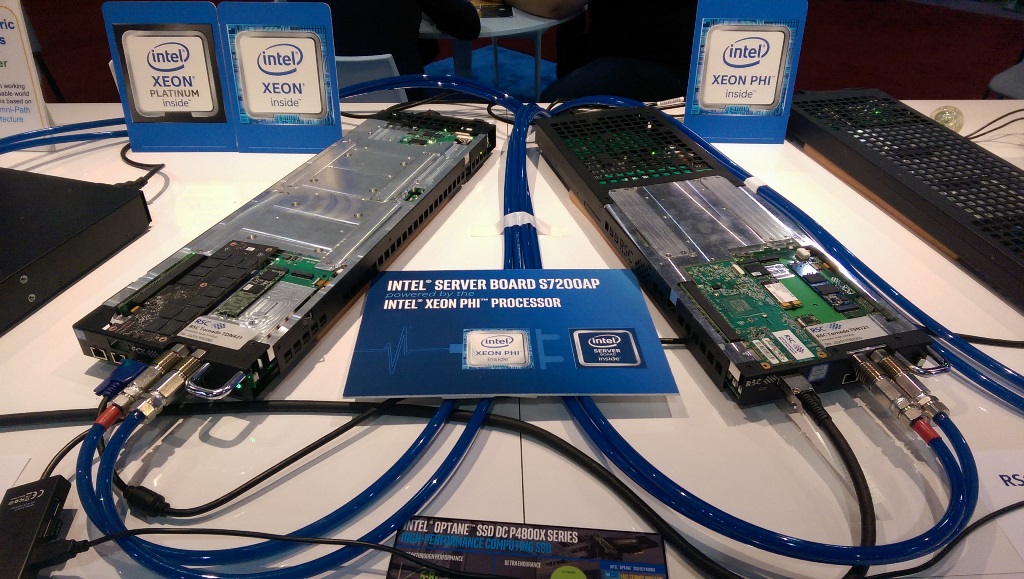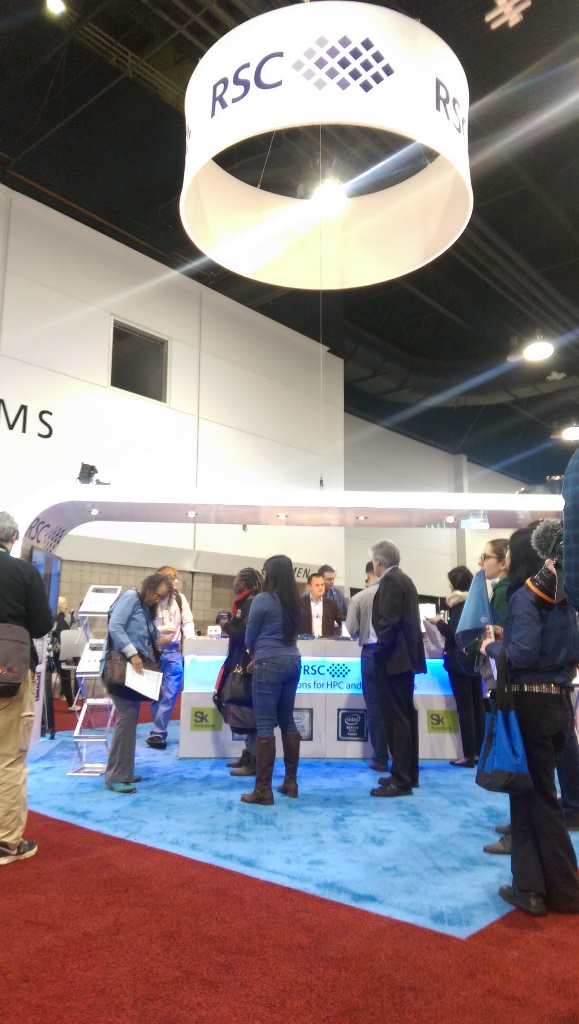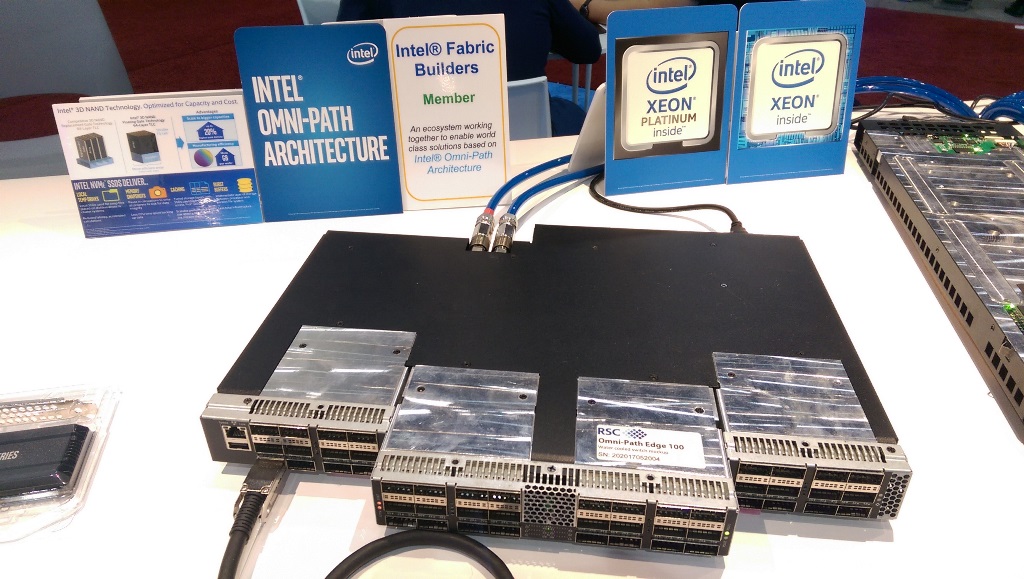Denver, Colorado (USA), Supercomputing Conference (SC17), November 14th, 2017. — RSC Group, the world’s leading developer and integrator of innovative ultrahigh-dense, scalable and energy efficient solutions for high-performance computing (HPC) and data centers, is showcasing at SC17, the world’s largest supercomputing exhibition and conference, the new generation of RSC Tornado solution with direct liquid cooling based on Intel® Xeon® Processor Scalable Family (at RSC booth #301 and at Intel Channel Pavilion #1319).
RSC is also pleased to announce it is joining the Intel® Select Solutions program and plans to offer the Intel® Select Solution for Simulation and Modeling that has been just announced at SC17. This new program is targeted for partner ecosystem in order to accelerate adoption of leading-edge data center infrastructure and simplify a process of selecting, deploying and optimizing specific workloads, including HPC. Intel® Select Solutions is a family of workload-optimized, validated solutions, based on Intel® Xeon® Scalable Processors and targeting today’s complex data center workloads. RSC is the only one Russian company to date which has announced it is joining the Intel® Select Solutions program.
At SC17, RSC is demonstrating a full set of components for modern HPC computing systems of different scale with 100% direct liquid cooling in ‘hot water’ mode, including high-performance RSC Tornado computing nodes based on the top-bin Intel® Xeon® Platinum and Intel® Xeon® Gold processors (part of the Intel® Xeon® Scalable platform), Intel® Server Board S2600BP, high-speed NVMe solid state drives in high-dense М.2 format and the latest Intel® Optane™ SSD DC P4800X Series. The RSC Tornado solution is built using 100% direct liquid cooled Intel® Omni-Path Edge Switch 100 Series that ensures end-to-end efficiency of the cooling solution with ‘hot water’ and eventually the lowest possible total cost of ownership of the system.
RSC Tornado based on Intel® Xeon® Scalable processors has set industry records for Intel® Xeon® processor based platforms, such as the leading computing density per rack of 685.44 TFLOPS of double precision floating point calculations, the highest performance density of 535 TFLOPS/m3 and the leading power density of 100 kW per standard 42U rack.
RSC Tornado solution has the leading footprint and computing density (up to 153 nodes in one standard cabinet 80cm x 80cm x 42U (32” x 32” x 42U), high energy efficiency and provides stable operation of computing nodes in ‘hot water’ mode with cooling agent temperature up to +65°C (149°F) at inlets of the whole computing rack (including nodes and interconnect switches). Operation in ‘hot water’ mode enables all-year free cooling (24x365) using only dry coolers with ambient temperature up to +50°C (122°F), and complete elimination of energy-intensive chillers from the cooling circuits. Therefore, an average year-around PUE (Power Usage Efficiency) of the system is 1.06 or less being an outstanding result for HPC industry.
Innovative management and monitoring system based on RSC BasIS integrated software stack also provides high availability, resistance to failures and ease of use of HPC computing systems based on RSC Tornado solution. This system is an open and easily expandable platform based on open source software and micro-agent architecture. It enables controlling entire data centers and their individual elements such as computing nodes, interconnects, infrastructure components (such as pumps, etc.), workloads and processes. Every system element (computing nodes, power supplies, hydraulic regulation modules, etc.) contains an integrated management module providing broad capabilities for detailed telemetry and flexible management. The RSC rack-level system design supports hot-swap replacement of computing nodes, power supplies and hydraulic regulation modules (with redundancy) without interruption of system operation. Most components of the system (such as computing and storage nodes, power supplies, network and infrastructure components, etc.) are software-controlled and provide flexible software-defined services that significantly simplifies and speeds up initial deployment, maintenance and future upgrades of the system. Liquid cooling of all components ensures reliability of operation and their longevity.







